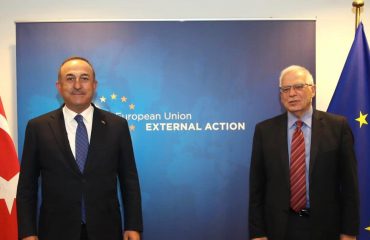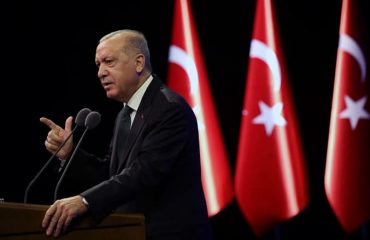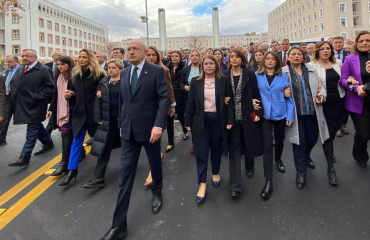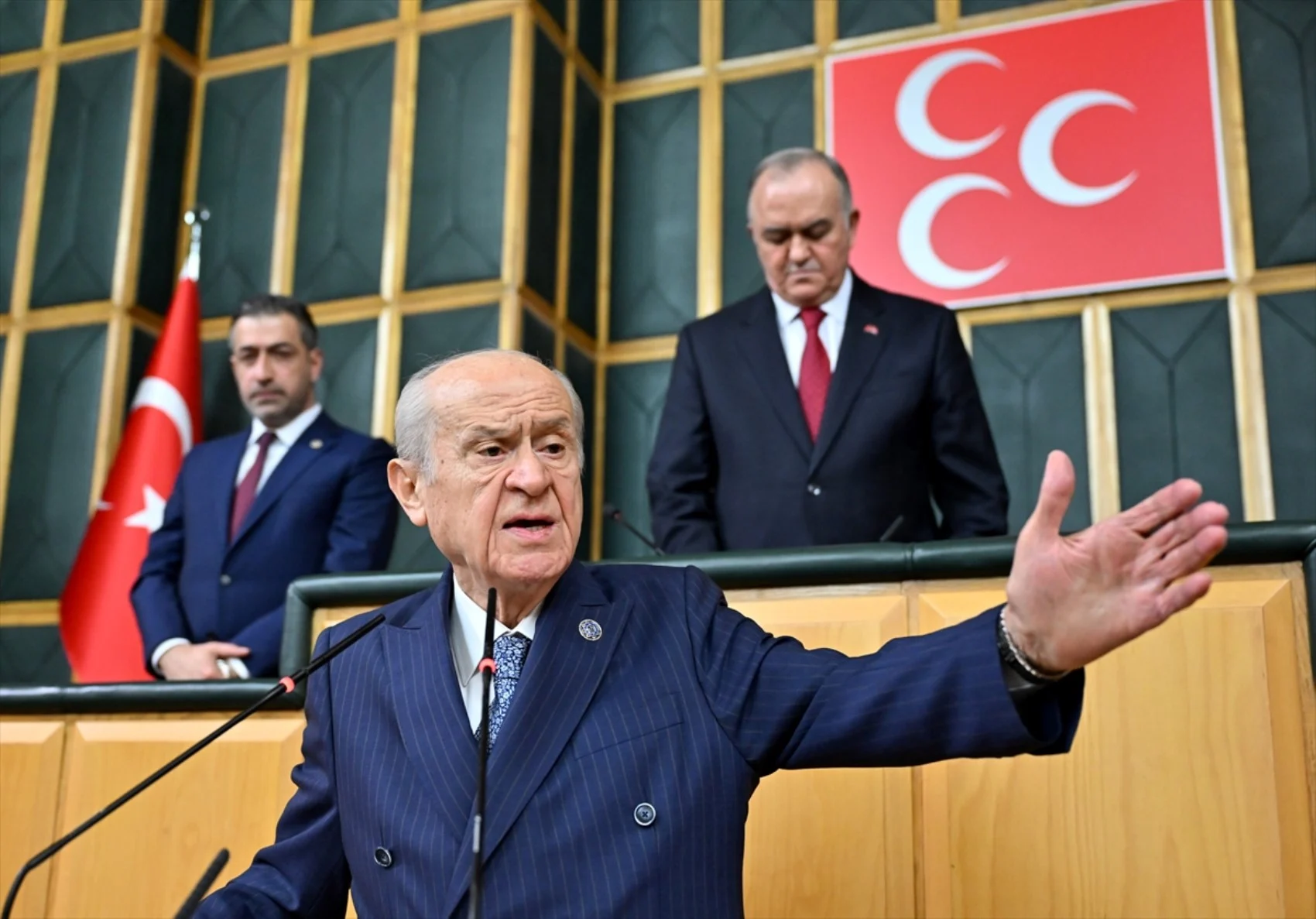
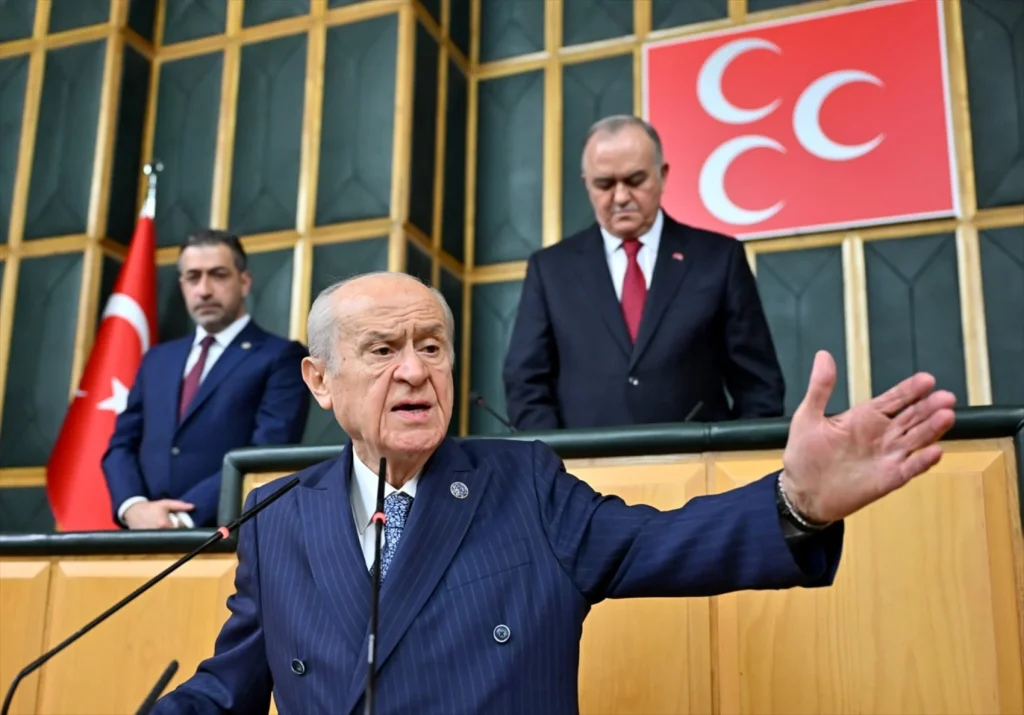
While absurd proposals like allowing the head of a terrorist organization to speak in Parliament divert public attention, on one side, we mourn the lives lost to terror, and on the other, we see workers and retirees crushed under the weight of economic and tax burdens. Whose interests does this scene serve?
Terrorism is one of the most sensitive issues facing the country, yet here we are again, shaken by another absurd proposal. To think that the head of a terrorist organization, sentenced to aggravated life imprisonment, could have a platform in Parliament—a notion so outlandish, it serves only to divert public focus. Those proposing this may argue for “freedom of expression” from the safe cover of political power, but if anyone else dared such expressions, they would already be behind bars, defending themselves for merely suggesting it was for peace.
Believing that such a terrorist could have a voice in the most sacred democratic institution is nothing short of an insult to terror victims, their families, and the future of the nation. This proposal does more than erode public trust; it deepens the wounds of families who have already paid the ultimate price.
TAI attack and “right to hope”
The painful reality of last week was the loss of five workers from TUSAŞ (TAI) to terrorism, along with the wounding of 22 citizens. We are losing young people, soldiers, and engineers across the country to terror. Yet, while we mourn them, the notion of giving Parliament’s podium to a figure immersed in bloodshed begs the question: What purpose does this truly serve?
Yes, the “right to hope” is an important concept, but the Constitution is clear. Even if an amnesty were declared, crimes against the state, terrorism among them, are outside any pardon. How, then, could anyone sentenced to life without parole be released, brought into Parliament without amending the Constitution? If this proposal is some maneuver to release someone with so much blood on their hands for the sake of political gain, can we really call it good intentions?
As the public rallies against such senseless ideas, we should question who benefits from these baseless agendas. Those with the courage to unmask terror at the cost of citizens’ lives and labor are the very ones backing this outrageous proposal to “give the terrorist leader a voice.” Such a move, however, is more than an insult; it’s a deliberate provocation to push society’s limits.
Struggles: Economic reality and “tax terrorism”
And then there’s economic and tax terrorism. The pressure placed on wage earners is used as a weapon, almost as a means of control.
A select few live in luxury, enjoying indulgent breakfasts with tropical fruits, exotic nuts, and fine honey, while a vast portion of the population—especially retirees—barely makes it to the end of the month. For many, it’s a struggle simply to keep the gas on and put food on the table. This economic reality has become a form of terrorism for the lower-income class and retirees—a terror that comes not with a physical battle but with the monthly assault on wallets. Taxes increase, price hikes follow every “fuel adjustment,” and yet wages remain stagnant. The retired worker, who has given years of service, can no longer meet even their basic needs, let alone support their family. The tragic irony is that those suffering under this economic “terrorism” are further isolated and silenced.
Those forced into supporting roles in this theater are the wage earners, retirees, subcontracted workers, and minimum wage laborers. On one side, soldiers, police, and engineers continue to fall victim to terror, while on the other, workers are battered by tax and economic policies. In short, the visible face of terror merges with a hidden regime of terror within the economic system.
How much longer can people remain silent?
So how much longer can those struggling under these conditions remain silent? The ruling power, lacking the ability to restore its waning credibility, seems intent on monopolizing the national agenda with nonsensical proposals.
Isn’t it those cloaked in “justice” and “rights” who actually ignore the real demands of the people? Shouldn’t those who undermine the value of labor and stifle the public under tax and price hikes be held accountable someday? Behind this stage lies another story: one of exploitation and profit, of a grand gamble played with human lives and livelihoods. And in this deeply flawed system, everyone is forced into a role they never chose.
The truth is that these roles were not offered with freedom of choice. While we debate whether a terrorist leader deserves a voice in Parliament, the economic struggles of workers, retirees, and small business owners are stifled under the guise of “national security.”
